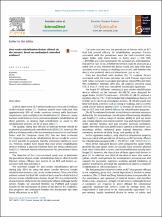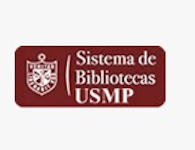Mostrar el registro sencillo del ítem
Post-stroke rehabilitation devices offered via the Internet: based on randomized controlled evidence?
| dc.contributor.author | Aguirre, Luis G. | |
| dc.contributor.author | Urrunaga-Pastor, Diego | |
| dc.contributor.author | Lazo-Porras, Maria | |
| dc.contributor.author | Taype-Rondan, Alvaro | |
| dc.date.accessioned | 2020-07-29T15:39:21Z | |
| dc.date.available | 2020-07-29T15:39:21Z | |
| dc.date.issued | 2018 | |
| dc.identifier.citation | Aguirre LG., Urrunaga D., Lazo M., Taype A. Post-stroke rehabilitation devices offered via the Internet: based on randomized controlled evidence? Annals of Physical and Rehabilitation Medicine. 2018; 61(1): 54-55. | es_PE |
| dc.identifier.uri | https://hdl.handle.net/20.500.12727/6407 | |
| dc.description.abstract | In 2013, there were 25.7 million stroke survivors and 6.5 million stroke-related deaths. Previous studies have indicated that approximately 40% of stroke survivors remain with functional impairments and need physical rehabilitation. However, many barriers could limit access to continuous physical rehabilitation for these patients, so devices that complement or assist in the rehabilitation process can be of great help. The quality, safety and efficacy of medical devices should be evaluated in randomized controlled trials (RCTs). However, the efficacy of many medical devices entering the market in the United States and the European Union (EU) has not been evaluated. Unproven post-stroke rehabilitation devices could be useless or even harmful to patients, thereby increasing healthcare costs. Previous studies have found that post-stroke rehabilitation devices without a rigorous evidence base are being commercialized. However, we lack information on the prevalence of these devices. | es_PE |
| dc.description.sponsorship | Fondo Nacional de Desarrollo Científico y Tecnológico, Fondecyt | es_PE |
| dc.format.extent | pp. 54-55 | es_PE |
| dc.language.iso | eng | es_PE |
| dc.publisher | Elsevier B.V. | es_PE |
| dc.relation.ispartof | urn:issn:1877-0657 | |
| dc.relation.ispartofseries | Annals of Physical and Rehabilitation Medicine;vol. 61, no. 1 | |
| dc.relation.uri | https://doi.org/10.1016/j.rehab.2017.09.006 | es_PE |
| dc.rights | info:eu-repo/semantics/openAccess | es_PE |
| dc.rights.uri | https://creativecommons.org/licenses/by/4.0/ | es_PE |
| dc.source | Repositorio Académico USMP | es_PE |
| dc.source | Universidad San Martín de Porres - USMP | es_PE |
| dc.subject | Accidente cerebrovascular | es_PE |
| dc.subject | Rehabilitación | es_PE |
| dc.subject | Medicina física y rehabilitación | es_PE |
| dc.title | Post-stroke rehabilitation devices offered via the Internet: based on randomized controlled evidence? | es_PE |
| dc.type | info:eu-repo/semantics/article | es_PE |
| thesis.degree.name | Medicina Humana | es_PE |
| thesis.degree.grantor | Universidad de San Martín de Porres. Facultad de Medicina Humana | es_PE |
| thesis.degree.discipline | Medicina | es_PE |
| dc.subject.ocde | https://purl.org/pe-repo/ocde/ford#3.02.00 | es_PE |
Ficheros en el ítem
Este ítem aparece en la(s) siguiente(s) colección(es)
-
Artículos [274]








